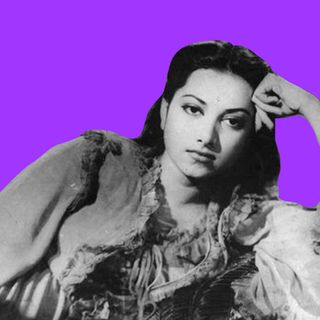
The Shows, Movies, Books and Music That Defined 2022
Nothing says 2022 like kitchen chaos, disappointing men, dystopia — and cake.

The 2022 wrap-up that characterized the year– and leaves us hopeful for the new one.
On TV: the rise of workplace horror, a wholesome internet trend, and chaotic cooking
The Bear
This kitchen drama upends what we have come to expect from a show revolving around food. The premise is simple enough: An award-winning chef returns to run his family’s sandwich shop. But then, chaos ensues. This masterfully-executed show deals with themes of tragedy, grief, vulnerability and perseverance – which have been recurring elements of life for many of us in the past few years – with most of it unfolding bang in the center of a hot and messy kitchen. What really hits home is how the protagonist-chef attempts to restore order to his crumbling world – a feeling we might all be too familiar with.
Severance
If there’s one theme that best captures many of today’s anxieties, it’s our relationship with work. In 2022, our exhaustion with being overworked became a new buzzword: ‘Quiet Quitting’. Severance seems perfectly timed to reflect the growing concerns around modern work culture. It is a dark and mind-bending take on the work-life balance we all seek, where employees undergo a procedure that cleaves their memories in a way that separates their work and personal lives. It goes further to explore the power wielded by large entities and our desire to escape harsh truths – all elements that make for a gripping watch.
Is It Cake?
With 2022 — much like 2020 and 2021 — was shrouded in doom and gloom, this show provided the levity we desperately needed. With existence itself becoming increasingly difficult to cope with, it was tremendously relieving to imagine oneself as part of a world where the biggest challenge one is confronted with is whether the household objects are merely that, or are delicious, creamy cakes instead.
In film: the trappings of love, capitalism, and fascism
Natchathiram Nagargiradhu
If there’s a better film interrogating the politics of love, intimacy, and the performances involved therein, it doesn’t exist yet. Pa Ranjith’s film examining power dynamics of caste, gender and sexuality within modern Indian relationships is fearless and compelling. There’s a magnetism to the cinematography, the score, and the symbolism that simultaneously draws you out of yourself, and further into yourself. Love and courtship under structural inequality are performances. n a world grappling with love, relationships, and the games we play therein, this is a film that gives us pause and asks: once we unpeel the layers of social constructs, what’s left? Does authenticity exist? The protagonist, René, shows that it does – if you’re brave enough to go there. I
GuillermoDel Toro’s Pinocchio
Set in fascist Italy, the Mexican director’s take on this classic fairy tale is a thought-provoking – and time-appropriate – adaptation. The film makes some astute observations on humans, puppets, and free will, and also explores the relationships between capitalism and fascism. The movie’s stop motion animation, and rustic visual language, complements Del Toro’s political commentary. The film is a true fairy tale adaptation, given the allegorical and political roots of the literary medium.
Emergency
This American comedy-drama thriller provided its audiences with a window into the usual – yet, jarring – ethical dilemmas of people of color in the U.S. Their marginalization denies them the liberty to do the right thing by rushing an unconscious teenager they came across to the emergency room. Taking place over the course of a single night, the Emergency is a rude awakening to the plight of people whose instinct to help fellow human beings can cost them their lives for no fault of theirs; it’s a tussle between self-preservation and moral responsibilities. In the aftermath of George Floyd’s killing, Emergency highlights how racism benefits no one – not even the communities of its perpetrators. It also ends with a powerful, but heartbreaking, message: the mere act of existing as an individual from a marginalized community is traumatizing, and can wreck one’s mental health to the point of causing them PTSD.
In books: queer subversion, elusive utopias and masculinities
Parallel Hells, Leon Craig
It’s queer horror, but make it 2022. Parallel Hells is a collection of short stories that captures the zeitgeist. Not in terms of what happened, but how it felt — and the subterranean anxieties lurking within all of us. Its jagged edges tear the contours of what we’re familiar with. ‘Lipless Grin’ is open to all sorts of interpretation: it’s how we feel gone for this world, already decaying in a sanctum of artificial peace. Come for the queer critique of everything society stands for, stay for the yummy creeps along the way.
To Paradise, Hanya Yanagihara
These are three great epics with overlapping themes — the search for paradise, not knowing if it really exists or not. There’s something heartbreakingly hopeful in the way that three characters, each a century apart from one another, stray from the bounds of the familiar with nothing but chance to rely on as they venture out for something better. Between the certainty of today and the vast unknown of tomorrow is limbo, and an all too humane hope for it to all be okay. Reading this in 2022 was a reckoning with what was; as we step into the unknown of 2023, it prompts questions about the ways we all act, ultimately, in search of paradise. Paradoxically, paradise is only possible in the darkest of times – escaping war, disease, other people, or ourselves, we inevitably hurtle into the unknown, in search of something better. This is arguably what we’re collectively doing, as we enter 2023.
Desperately Seeking Shah Rukh, Shrayana Bhattacharya
Technically, this was a 2021 book. Technically, this is also a 2022 book – the paperback having been released in this year. But technicalities aside, Desperately Seeking Shah Rukh was a cultural reckoning with masculinity. In the “year that men flopped,” according to New York Magazine, Shrayana Bhattacharya gets to the bottom of it – with economics to show how heteronormativity and patriarchy extract heavy tolls from Indian women across socio-economic locations. Shah Rukh is ephemeral, the unattainable masculinity that represents hope, allowing women encumbered by an unequal inheritance to cope with the disappointments of real life, of men, and of their quest for love with them.
In music: solidarity, the return of good soundtracks, and reclamation
Pasoori
The many interpretations of Pasoori — from themes surrounding queer love to the partition of India — is proof of both the song’s popularity, appeal, and recall value. People did more than just listen to the song on loop; they actually spent time pondering its lyrics — in an age where our attention spans are rapidly decreasing, this says a lot. Not to mention, of course, that the song didn’t just stand out because we’re tired of remakes and remixes, but also because the composition per se is a work of beauty. The collective love for the song, from Indian and Pakistani audiences alike, was just an added bonus.
Qala
Amit Trivedi’s best film album since 2018’s Manmarziyaan witnessed five four lyricists each penning one song for this period film about fame in the music industry. The soundtrack has a vintage, yet fresh, feel about it. In the age of electronic music and dance beats, the period-appropriate soundtrack packs a punch with its use of full instrumentalization. The songs are each distinct from each other. While Shauq, written by Varun Grover, is a dreamy melancholy affair, Ghode Pe Sawaar written by Amitabh Bhattacharya is a groovy, immensely catchy satire on consent.
Coke Studio Bangla
Easily mistaken for an edition featuring musicians from West Bengal, Coke Studio Bangla spotlights artistes from Bangladesh. Indians have long raved about singers from Pakistan — with Nusrat Fateh Ali Khan, Reshma, Adnan Sami, and Atif Aslam becoming household names here, and Coke Studio’s version of Afreen Afreen (by Rahat Fateh Ali Khan and Momina Mustehsan) from 2016 still being played at house parties in India. But despite India’s shared cultural history with Bangladesh, there are jarringly few opportunities for Indians to experience the neighboring country’s music scene — especially through a platform as massive as Coke Studio. With songs like Shob Lokey Koy, Dokhino Hawa, Lilabali, and Bulbuli, the first season of Coke Studio Bangla has given us Tahsan Khan, Kaniz Khandaker, Sanzida Mahmood, Rituraj Baidya, and Shahidullah Faraizee.
Related


The Conversations That Inspired Passion This Year
